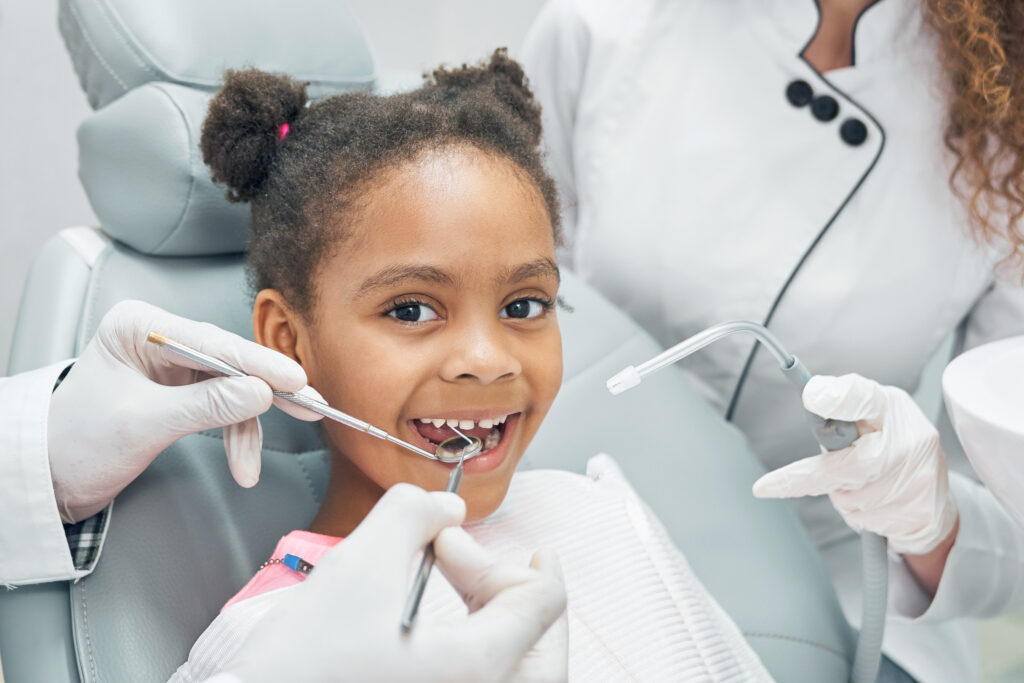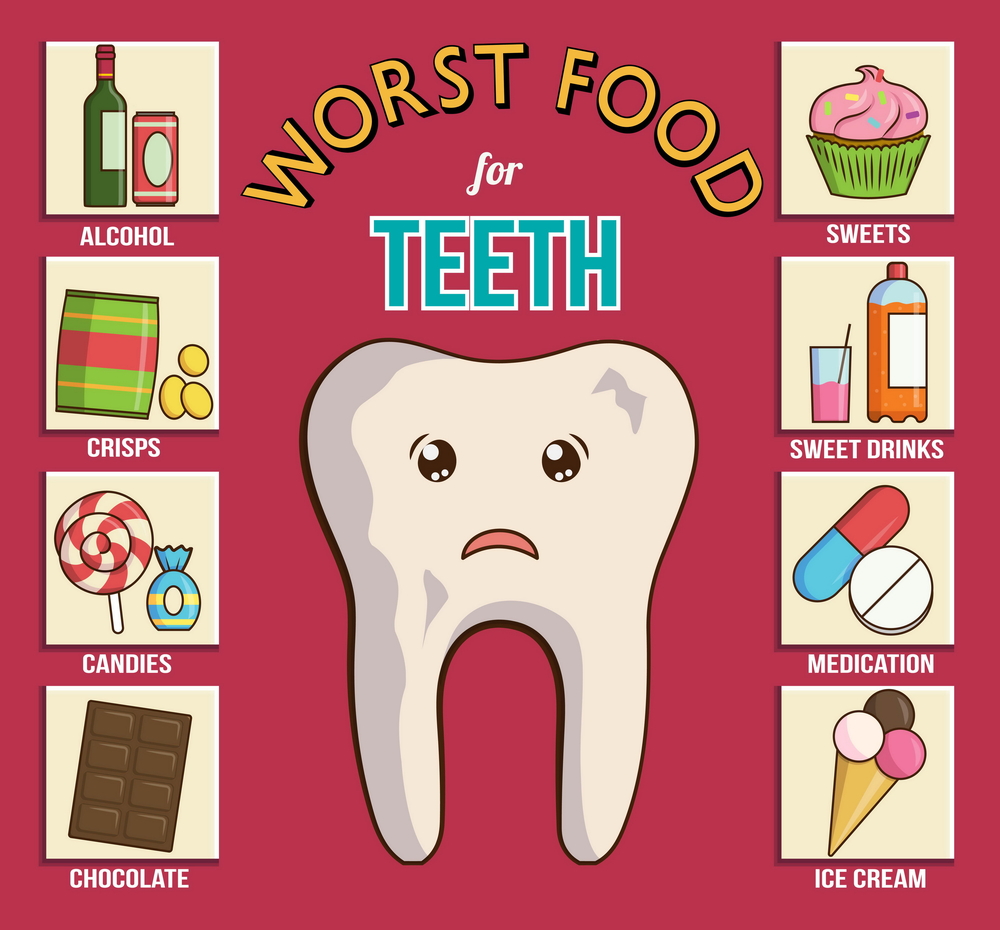Dental Tips 2023 – Now that a new year has begun, it’s the ideal time to make your resolutions. People
frequently want to be healthy, therefore you should put more effort and dedication into it.
Maintaining proper oral hygiene and dental habits is essential for overall health.
It might be stressful to try to decide what is best for your teeth, whether you’re making it
a New Year’s Resolution or you’re just trying to develop better dental care practices.
One of the best recommendations for proper oral hygiene is to visit the dentist
frequently. However, a lot of households and people disregard or take this advice for
granted. Even if your teeth feel fine, you should still schedule at least two annual dental
appointments.
For effective oral hygiene, you need a good toothpaste. It can assist to clean teeth,
combat germs, lessen plaque buildup, and freshen breath. There are a ton of different
toothpaste alternatives available, but those that contain fluoride are the best. High-
fluoride toothpaste is available in a lot of pharmacies, marketplaces, and online.
Toothpaste containing fluoride can also aid in preventing tooth decay.
You can lower your chance of developing tooth decay by limiting the amount of acid and
sugar you ingest. Alcohol is frequently combined with carbonated beverages. If you’re
already limiting your intake of carbonated beverages, consider doing the same with
alcohol to see how it affects your oral health.
Immediately after brushing your teeth, you should floss. Some people skip this step, so
if you’re one of them, it’s time to switch up your dental routine right away. Your teeth
and gums may not be completely cleaned by brushing alone. You can reach every
crevice in your mouth by flossing.
Including all of these reminders in your regular dental care regimen is one of the
simplest ways to remember them. This implies that in order to develop the habit and
make sure it is done correctly each and every day, you brush and floss your teeth in the
morning and just before going to bed.
Here are some tips for teens to maintain healthy teeth:

- Brush your teeth properly: Brush your teeth at least twice a day for two minutes each time. Use a soft-bristled toothbrush and fluoride toothpaste. Brush all surfaces of your teeth, including the front, back, and chewing surfaces. Don’t forget to brush your tongue as well to remove bacteria and freshen your breath.
- Floss daily: Flossing is essential to remove plaque and food particles from between your teeth and along the gumline. Use dental floss or interdental cleaners to clean these areas. Make sure to be gentle and avoid snapping the floss against your gums.
- Avoid sugary and acidic foods: Limit your intake of sugary snacks and beverages like sodas, candies, and cakes. These can contribute to tooth decay. Also, acidic foods and drinks, such as citrus fruits and carbonated drinks, can erode tooth enamel. If you do consume them, rinse your mouth with water afterward.
- Choose tooth-friendly foods: Opt for a balanced diet rich in fruits, vegetables, whole grains, lean proteins, and dairy products. These provide essential nutrients for healthy teeth and gums, such as calcium, phosphorus, and vitamins.
- Wear a mouthguard: If you participate in sports or other physical activities, wear a mouthguard to protect your teeth from injuries. Custom-fitted mouthguards provide the best protection and comfort.
- Avoid tobacco and alcohol: Tobacco and alcohol can cause significant harm to your oral health. They can stain your teeth, increase the risk of gum disease and oral cancer, and lead to bad breath. Avoid using them altogether.
- Stay hydrated: Drinking plenty of water helps to keep your mouth moist and wash away food particles and bacteria. It also promotes saliva production, which is crucial for maintaining healthy teeth and gums.
- Visit the dentist regularly: Regular dental check-ups are important for preventive care. Schedule dental appointments every six months or as recommended by your dentist. They can detect any issues early on and provide professional cleanings to remove plaque and tartar buildup.
- Be mindful of teeth grinding: If you tend to grind or clench your teeth, especially during sleep, consult your dentist. They may recommend a mouthguard to protect your teeth from damage and alleviate related issues like jaw pain.
- Practice good oral hygiene habits: In addition to brushing and flossing, incorporate good oral hygiene habits into your routine. Avoid biting on hard objects, such as pens or ice, which can chip or crack your teeth. Don’t use your teeth to open packages or bottles. Lastly, replace your toothbrush every three to four months or sooner if the bristles become frayed.
Remember, maintaining good oral hygiene is essential for a healthy smile and overall well-being.
Here are some tips for kids to maintain healthy teeth:

- Start brushing early: Begin cleaning your child’s gums even before their teeth erupt. Use a soft, damp cloth or a toothbrush specifically designed for infants to gently wipe their gums after feedings. Once their teeth start coming in, transition to a small, soft-bristled toothbrush.
- Brush twice a day: Encourage your child to brush their teeth at least twice a day for two minutes each time. Use a pea-sized amount of fluoride toothpaste appropriate for their age. Teach them proper brushing techniques, including brushing all surfaces of the teeth and the tongue.
- Make brushing fun: Turn toothbrushing into a fun and engaging activity. Use colorful toothbrushes, sing songs, or use a timer to make sure they brush for the recommended time. You can also find toothbrushes and toothpaste featuring their favorite cartoon characters to make it more appealing.
- Assist with brushing: Young children may not have the dexterity to brush their teeth effectively. Offer assistance and supervise their brushing until they can handle it on their own, usually around the age of 6 or 7. Make sure to reach the back molars, which are prone to cavities.
- Teach proper flossing: Introduce flossing when your child’s teeth start touching each other. Demonstrate the correct technique and assist them until they can floss independently, usually around the age of 10 or 11.
- Limit sugary snacks and drinks: Encourage healthy eating habits by limiting sugary snacks and beverages. Offer nutritious alternatives like fruits, vegetables, and dairy products. Avoid prolonged exposure to sugary or acidic substances, as they can contribute to tooth decay.
- Drink water: Encourage your child to drink water throughout the day. Water helps rinse the mouth and prevent dryness. It’s a healthier choice than sugary drinks and helps maintain overall hydration.
- Visit the dentist regularly: Schedule regular dental check-ups for your child, typically every six months. These visits are crucial for preventive care, early detection of dental issues, and professional cleanings.
- Use fluoride appropriately: Ensure your child gets an appropriate amount of fluoride to strengthen their teeth. If your tap water doesn’t contain fluoride, talk to your dentist about fluoride supplements or fluoride treatments during dental visits.
- Lead by example: Children learn by observing their parents’ behaviors. Show them the importance of good oral hygiene by practicing it yourself. Brush and floss together as a family to make it a shared and enjoyable experience.
Remember, establishing good oral hygiene habits from a young age sets the foundation for a lifetime of healthy teeth and gums.
Here are some tips for seniors to maintain healthy teeth:

- Maintain regular dental visits: As you age, it becomes even more important to visit the dentist regularly. Schedule dental check-ups every six months or as recommended by your dentist. Regular exams can help detect and address any oral health issues early on.
- Brush and floss daily: Continue to brush your teeth at least twice a day with a soft-bristled toothbrush and fluoride toothpaste. Brushing helps remove plaque and bacteria from your teeth and gums. Don’t forget to floss daily to clean between your teeth and along the gumline.
- Consider an electric toothbrush: If manual brushing becomes challenging due to arthritis or other mobility issues, consider switching to an electric toothbrush. Electric toothbrushes can be easier to use and provide more effective cleaning.
- Address dry mouth: Dry mouth is a common issue among seniors and can increase the risk of tooth decay. Stay hydrated by drinking plenty of water throughout the day. Chewing sugar-free gum or using saliva substitutes can help stimulate saliva production. If dry mouth persists, consult your dentist for additional solutions.
- Manage medication side effects: Some medications can cause oral health issues, such as dry mouth or gum problems. Inform your dentist about any medications you’re taking, including over-the-counter drugs and supplements. They can provide guidance on how to manage any oral health side effects.
- Practice good denture care: If you wear dentures, clean them regularly as instructed by your dentist. Remove and rinse your dentures after meals, and brush them with a denture cleaner to remove plaque and food particles. Make sure to clean your mouth and gums as well, even if you have full dentures.
- Pay attention to gum health: Gum disease can be more prevalent among seniors. Watch out for signs of gum inflammation, bleeding, or sensitivity. If you notice any issues, consult your dentist promptly for evaluation and treatment.
- Maintain a healthy diet: Eating a balanced diet rich in fruits, vegetables, whole grains, lean proteins, and dairy products provides essential nutrients for oral health. Adequate calcium and vitamin D intake are especially important for maintaining strong teeth and bones.
- Limit tobacco and alcohol use: Tobacco and alcohol can significantly impact oral health, increasing the risk of gum disease, oral cancer, and tooth loss. If you use tobacco or consume alcohol, take steps to quit or reduce your intake for the benefit of your overall oral health.
- Practice good overall health habits: Maintaining good overall health has a positive impact on oral health. Exercise regularly, manage stress, and follow a well-balanced diet. Conditions like diabetes and heart disease can affect oral health, so work with your healthcare providers to manage these conditions effectively.
Remember, taking care of your oral health is crucial at every stage of life. By following these tips and maintaining regular dental care, you can enjoy a healthy and vibrant smile as a senior.
Here are some tips for adults to maintain healthy teeth:
- Follow a consistent oral hygiene routine: Brush your teeth at least twice a day for two minutes each time. Use a soft-bristled toothbrush and fluoride toothpaste. Additionally, floss daily to remove plaque and food particles from between your teeth and along the gumline.
- Use proper brushing technique: Angle your toothbrush at a 45-degree angle to the gumline and use gentle, circular motions to clean all surfaces of your teeth. Don’t forget to brush your tongue to remove bacteria and freshen your breath.
- Choose a balanced diet: A nutritious diet contributes to good oral health. Limit sugary snacks and beverages, and opt for a diet rich in fruits, vegetables, whole grains, lean proteins, and dairy products. These provide essential nutrients for healthy teeth and gums.
- Limit acidic foods and drinks: Acidic foods and drinks, such as citrus fruits, tomatoes, and carbonated beverages, can erode tooth enamel. Consume them in moderation and rinse your mouth with water afterward.
- Quit smoking and limit alcohol consumption: Smoking and excessive alcohol consumption have detrimental effects on oral health. They can cause tooth discoloration, gum disease, oral cancer, and bad breath. Quit smoking and drink alcohol in moderation, if at all.
- Drink plenty of water: Water is beneficial for oral health. It helps rinse away food particles and bacteria, maintains saliva production, and prevents dry mouth. Stay hydrated throughout the day by drinking water regularly.
- Protect your teeth during physical activities: If you participate in sports or activities that carry a risk of dental injury, wear a mouthguard to protect your teeth. Custom-fitted mouthguards offer the best protection.
- Manage stress: Stress can contribute to teeth grinding or clenching, known as bruxism. If you experience excessive stress, try stress management techniques and consider using a mouthguard at night to protect your teeth.
- Limit snacking and grazing: Frequent snacking or sipping on sugary or acidic beverages throughout the day increases the risk of tooth decay. Try to limit snacking and opt for healthier options when you do snack.
- Visit the dentist regularly: Schedule regular dental check-ups and cleanings every six months or as recommended by your dentist. Dental professionals can detect and address any oral health issues early on and provide professional cleanings to remove plaque and tartar buildup.
Remember, maintaining good oral hygiene habits and seeking regular dental care are essential for long-term oral health. By following these tips, you can help keep your teeth and gums in excellent condition.

